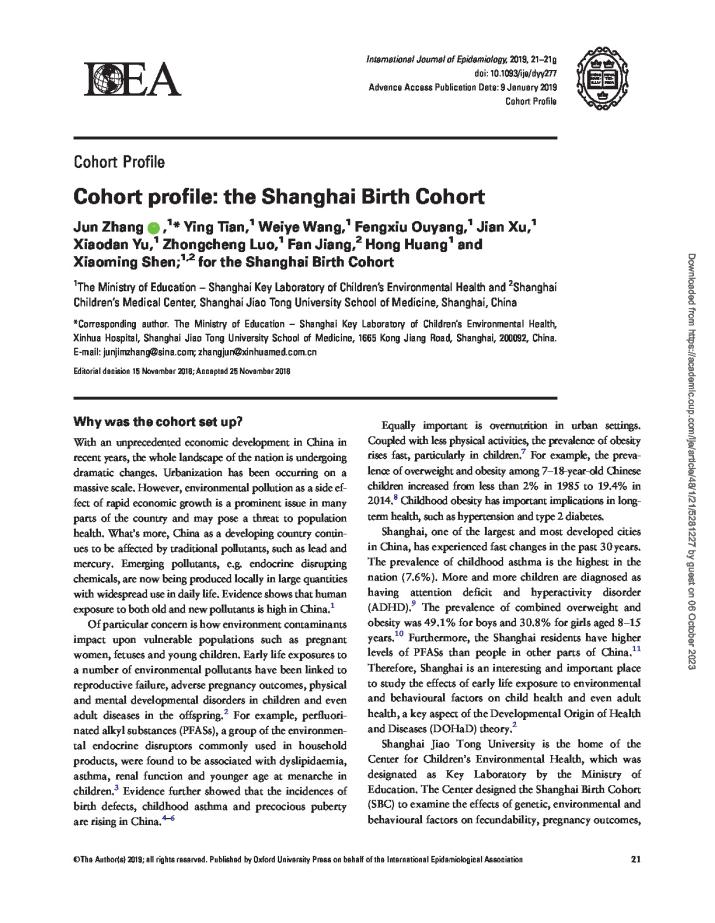Epigenetic Implications of Chronic PFOA Exposure: A Shanghai Birth Cohort Study

Project member(s):
-
Hannah Medsker
Faculty mentor:
Community partners:
-
Dr. Yongjie (Jack) Liu
Shanghai Jiao Tong University School of Medicine Key Laboratory of Children's Environmental Health
- Feedback? Contact the team
Epigenetic Implications of Chronic PFOA Exposure: A Shanghai Birth Cohort Study
Project overview
PFAS, colloquially referred to as "forever chemicals," are man-made chemicals that have been integrated into industry and consumer products worldwide since the 1940s. They are the basis of fluoropolymer coatings, which are used in products to make them resistant to heat, oil, stains, grease, and water. Over 9,000 different compounds have been discovered to date, several of which are now commonly found in food, water, and air, and accumulate inside organisms.
Two of the most prevalent compounds, PFOS and PFOA, were phased out of production in North America and Europe due to rising public concerns regarding their effects on health and their persistence in the environment. Unfortunately, the production line has largely shifted from West to East, with Eastern China experiencing the highest burden of PFAS contamination.
PFAS exposure is associated with a variety of harmful effects on health in both animals and humans, compromising reproductive, neurodevelopmental, hormonal, immunological, and metabolic outcomes. Although it is clear that PFAS is hazardous to wildlife and humankind alike, the biochemical pathways through which specific compounds act are not yet well understood.
The Shanghai Birth Cohort (SBC) is a large-scale prospective observational project led by the Shanghai Jiao Tong University School of Medicine. As part of the Environment and Child Health International Birth Cohort Group led by the World Health Organization, SBC primarily investigates the impact of environmental contaminants on pregnant women, fetuses, and young children.
Our study (an SBC sub-study) is an in-depth analysis of genetic data obtained from ten SBC subjects. Using the novel Guide Positioning Sequencing (GPS) method, we are investigating aberrant placental DNA methylation arising from high PFOA exposure. We hypothesize that placental DNA mediates the impact of the toxin PFOA on pregnancy outcomes - particularly, fetal neurodevelopment.
Media and resources

Last updated on October 13, 2023

